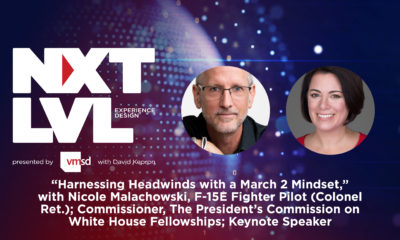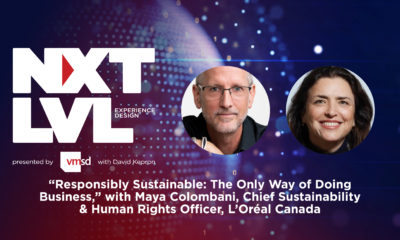NXTLVL Experience Design
Episode 53: Bert Ohnemüller
Lead, Speak and Inspire into the Decade of Humanity with Bert Ohnemüller, High Performance Business Coach and Founder, neuromerchandising group
Published
12 months agoon
By
David KepronEPISODE SUMMARY
Bert Martin Ohnemüller is a High Performance Business Coach and founder of the neuromerchandising® group. His mission is to Lead, Speak and Inspire individuals and corporations into the ‘Decade of Humanity’ – a world where people do what they do with passion, a world where companies are role models for the society. A truly value based world. Bert and host David Kepron talk about leadership starting with understanding oneself, the KPI of ‘Return on Kindness’, learning to trust your intuition, neuroscience of customer engagement, evolutionary biology and a move from a focus on customer experience (CX) to Employee Experience (EX).
EPISODE NOTES
ABOUT BERT MARTIN OHNEMULLER:
Bert Martin’s Profile: linkedin.com/in/bert-martin-ohnemüller-bmo
Websites:
- Personal: bmo.de
- Company Website: www.neuromerchandising.com
- Phone: +4915158780680 (Mobile)
- Address: Kaiserstrasse 61 60329 Frankfurt
- Email: bmo@bmo.de
- Twitter: BertMartin
SHOW INTRO:
AdvertisementIn 2015 I had finished writing my book Retail (r)Evolution and was the world of speaking engagements where I was out spreading the message.
Anyone who has written a book will tell you that getting the text published it’s just the beginning. The next exciting, though occasionally somewhat tiring, step is to be out on the road speaking at conferences and engaging audiences in the ideas that you had spent the previous two or more years developing and putting to paper.
I had the good fortune to be invited to speak at the Shopper Brain Conference in Amsterdam presented by the Neuromarketing Science and Business Association.
Speaking at the Shopper Brain Conference was somewhat of a an acid test, a way to be able to gauge whether me – the non-neuroscientist but but the artist, architect, educator and now author, who happened to spend the last four years or so deep diving into the world of neuroscience and its interrelationship with customer behavior and emerging digital technologies, would survive in front of an audience full of scientists and neuromarketing practitioners.
My son who I had offered the opportunity to come along on the trip with me would be busy working on homework in the hotel lobby while he was dad was out in front of a few 100 conference attendees talking about the brain, the things you might just want to know about how it works if you’re proposing to make engaging customer experiences and the influence that digital technologies was having on both the three pound organ inside your skull and the behavior of shoppers around the globe.
I had studied psychology before ente ring the school of architecture at McGill University in Montreal but digging into the world of neuroscience had totally captivated me.
AdvertisementI knew that at a base level there was more than just psychology at play in what people did when on a shopping trip. My original intuition was there had to be something, at a base level, that was driving behavior that was maybe crossed generationally, cross culturally, cross ethnically etc similar for all humans. And so, studying neuroscience, brain structures and how things worked inside our head became an area of deep study.
That fascination his not left me but only become deeper.
Seemed like the more I studied the more I felt I didn’t fully understand. But then again that probably made some sense because the pace at which discoveries were being made in the neuroscience world were unfolding at a rapid pace where imaging technologies we’re now allowing us to see into the brain in ways that we’ve never seen before.
And so there I was digging into subjects like the mind body connection, the power of stories and the release of neurochemicals, mirror neurons and understanding the brain as a pattern recognizing machine.
Understanding the brain began to suggest that what I might have understood as intuition based on experience and careful observation of how people reacted in places could be augmented with the heft of science that was quite definitive about what people might likely do or feel in spaces based on how the environment around them was designed and the interactions they were having with other people.
While at the conference I sat and watched scientists, marketing and advertising executives, thought leaders and design practitioners all talk about the power of understanding the brain.
AdvertisementOne of the other speakers and I struck up a conversation while there and it seemed as though we both we’re coming to this world with deep fascination about how the understanding of neuroscience would shape the interactions between people in the brand experience place.
Bert Ohnemuller and I seemed to connect immediately.
Bert seemed to have an air of approachable and transparent authenticity. He seems genuine and curious in his willingness to discover new ideas and to hear new insights and different points of views that challenged his preconceptions.
He was candid and attentive in our conversations sharing some of the challenges in understanding science behind the brain and other subjects such as creating places for relevant customer engagement and leadership.
In the past few years Bert and I both chased different professional paths and until recently Bert and I reconnected. His enthusiasm to learn and compassionate approaches to understanding how we as humans might optimize our lived experience had not left him. In fact to the contrary, it seemed like it had only become more profound. He’s a man on a mission.
Talking to Bert Ohnemuller is like opening a compendium of thought leadership seminars, that are founded in neuroscience and evolutionary biology.
Despite his deep understanding of neuroscience, he is someone that very much has decided to leave his head and lead with his heart.
It is perhaps because he is so deeply studied the science that he is able to look inward and understand his own behavior as being a function of where we have come as a species and how the mind body connection of our individual systems is just part of a larger more complex system where individuals resonate and influence the emotional states and behaviors of others.
Bert believes that leadership style starts with understanding the self, that leadership is first and foremost about self leadership.
In fact he takes this a step further and suggests that leaders should be required to deeply understand and lead themselves before they be put in positions of leading others.
He often talks about the EPS – Emotional Positioning System not a Global Positioning System.
However his emotional positioning system, that inner sense of who we are and what drives us in making our decisions and creating empathic and relevant relationships to others, is in fact a Global Positioning System of me within the context of the larger human whole.
He believes that in understanding ourselves we might then extend that self knowledge outwards towards others deepening our relationships through empathic extension.
Bert believes that we are in what he refers to as the Decade of Humanity. And unpacks these ideas in his book “
Lead- Speak- Inspire” which has now been translated into five languages. Ohnemuller’s principle key performance indicator for the decade of humanity is what he calls “ROK – Return on kindness.”
A core component of this premise his based on the idea of personal responsibility. That we have to develop response – ability; our ability to respond appropriately in circumstances that challenge our existing narratives.
After working for years in the fast-paced and high-pressured Consumer Packaged Goods industry with companies like Nestle, Bert now is a high performance business coach and the founder of the neuromerchandising group.
His mission he says is spreading knowledge and leadership philosophies in the decade of humanity – a world where people do what they do with passion, a world where companies are role models for the society. A truly value based world.
Bert Ohnemuller is a sought-after keynote speaker, author of several books positive psychology with more than three decades of entrepreneurial experiences.
For Ohnemueller says that “humanity is not a soft or romantic quality but the precondition for long term success and profitability. We need to have a much better understanding about human beings and about oneself in order to unlock the full potential of individual and corporations.”
ABOUT DAVID KEPRON:
LinkedIn Profile: linkedin.com/in/david-kepron-9a1582b
Websites:
https://www.davidkepron.com (personal website)
vmsd.com/taxonomy/term/8645 (Blog)
Email: david.kepron@NXTLVLexperiencedesign.com
Twitter: DavidKepron
Personal Instagram: https://www.instagram.com/davidkepron/
NXTLVL Instagram: https://www.instagram.com/nxtlvl_experience_design/
Bio:
David Kepron is a multifaceted creative professional with a deep curiosity to understand ‘why’, ‘what’s now’ and ‘what’s next’. He brings together his background as an architect, artist, educator, author, podcast host and builder to the making of meaningful and empathically-focused, community-centric customer connections at brand experience places around the globe.
David is a former VP – Global Design Strategies at Marriott International. While at Marriott, his focus was on the creation of compelling customer experiences within Marriott’s “Premium Distinctive” segment which included: Westin, Renaissance, Le Meridien, Autograph Collection, Tribute Portfolio, Design Hotels and Gaylord hotels.
In 2020 Kepron founded NXTLVL Experience Design, a strategy and design consultancy, where he combines his multidisciplinary approach to the creation of relevant brand engagements with his passion for social and cultural anthropology, neuroscience and emerging digital technologies.
As a frequently requested international speaker at corporate events and international conferences focusing on CX, digital transformation, retail, hospitality, emerging technology, David shares his expertise on subjects ranging from consumer behaviors and trends, brain science and buying behavior, store design and visual merchandising, hotel design and strategy as well as creativity and innovation. In his talks, David shares visionary ideas on how brand strategy, brain science and emerging technologies are changing guest expectations about relationships they want to have with brands and how companies can remain relevant in a digitally enabled marketplace.
David currently shares his experience and insight on various industry boards including: VMSD magazine’s Editorial Advisory Board, the Interactive Customer Experience Association, Sign Research Foundation’s Program Committee as well as the Center For Retail Transformation at George Mason University.
He has held teaching positions at New York’s Fashion Institute of Technology (F.I.T.), the Department of Architecture & Interior Design of Drexel University in Philadelphia, the Laboratory Institute of Merchandising (L.I.M.) in New York, the International Academy of Merchandising and Design in Montreal and he served as the Director of the Visual Merchandising Department at LaSalle International Fashion School (L.I.F.S.) in Singapore.
In 2014 Kepron published his first book titled: “Retail (r)Evolution: Why Creating Right-Brain Stores Will Shape the Future of Shopping in a Digitally Driven World” and he is currently working on his second book to be published soon. David also writes a popular blog called “Brain Food” which is published monthly on vmsd.com.
************************************************************************************************************************************
The next level experience design podcast is presented by VMSD magazine and Smartwork Media. It is hosted and executive produced by David Kepron. Our original music and audio production by Kano Sound.
The content of this podcast is copyright to David Kepron and NXTLVL Experience Design. Any publication or rebroadcast of the content is prohibited without the expressed written consent of David Kepron and NXTLVL Experience Design.
Make sure to tune in for more NXTLVL “Dialogues on DATA: Design Architecture Technology and the Arts” wherever you find your favorite podcasts and make sure to visit vmsd.com and look for the tab for the NXTLVL Experience Design podcast there too.
David Kepron is formerly the VP - Global Design Strategies – Premium Distinctive Brands at Marriott Intl., responsible for the strategic design direction for Westin, Le Meridien, Renaissance, Autograph Collection, Tribute Portfolio, Design Hotels and Gaylord Hotels. He is also the founder of Retail (r)Evolution, LLC and NXTLVL Experience Design, LLC. In his latest venture, NXTLVL Experience Design, Kepron brings years of retail and hospitality design expertise to the making of meaningful customer connections at brand experience places around the globe. His multidisciplinary approach to design focuses on understanding consumer behavior and the creation of relevant brand engagement moments at the intersection of architecture, sociology, neuroscience and emerging digital technologies. As a frequently requested speaker to retailers, hoteliers and design professionals nationally and internationally, David shares his expertise on subjects ranging from consumer behaviors and trends, brain science and buying behavior, store design and visual merchandising as well as creativity and innovation. @davidkepron; www.retail-r-evolution.com.

SPONSORED HEADLINE
7 design trends to drive customer behavior in 2024
In-store marketing and design trends to watch in 2024 (+how to execute them!). Learn More.
Advertisement

Nordstrom to Evaluate Founding Family’s Plan to Go Private

“Balmain Beach Club” Washes Ashore at Neiman Marcus

2024 Designer Dozen: Lisa Rachielles
SUBSCRIBE

Bulletins
Get the most important news and business ideas from VMSD magazine's news bulletins.
Advertisement
Most Popular
-

 Photo Gallery3 days ago
Photo Gallery3 days agoThe 2024 Shop! Design Awards Winners
-

 Headlines1 week ago
Headlines1 week agoNew-Look JC Penney Debuts in New Jersey
-
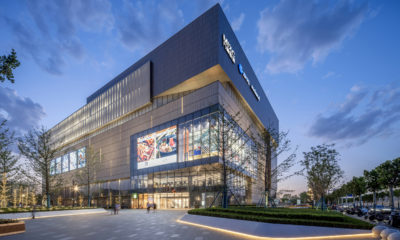
 Sector Spotlight2 weeks ago
Sector Spotlight2 weeks agoIt’s a Mall World After all
-
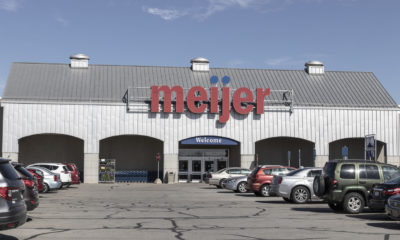
 Headlines1 week ago
Headlines1 week agoMeijer Adding Three Supercenters
-

 Headlines4 days ago
Headlines4 days agoLong Island Shopping Center Sold for $8M
-

 Headlines2 weeks ago
Headlines2 weeks agoUniqlo Expanding Into Texas and in California
-
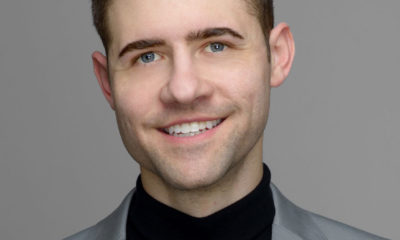
 Designer Dozen1 week ago
Designer Dozen1 week ago2024 Designer Dozen: Evan Harkrider
-
 Headlines2 days ago
Headlines2 days agoALDI Launches Checkout-Free Grocery
